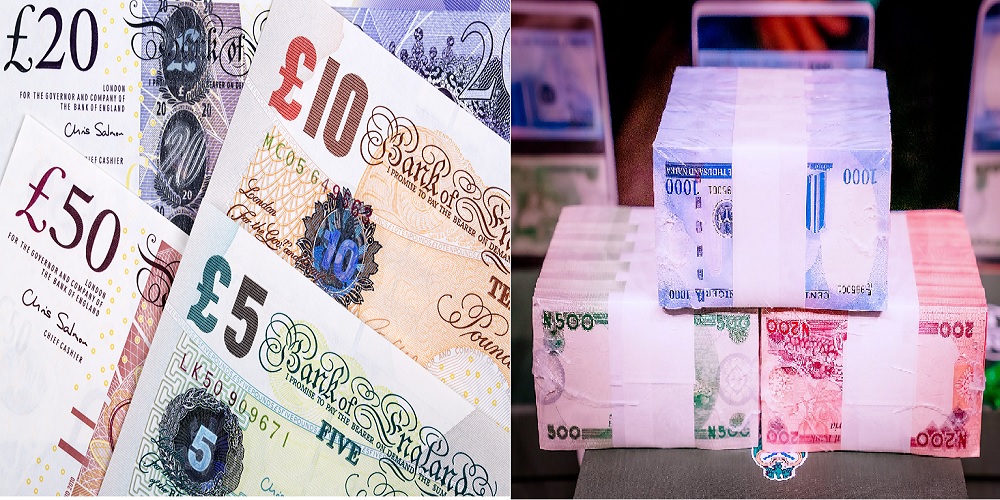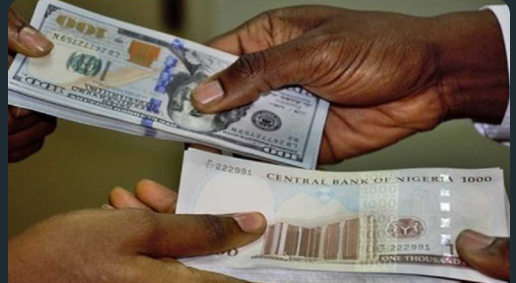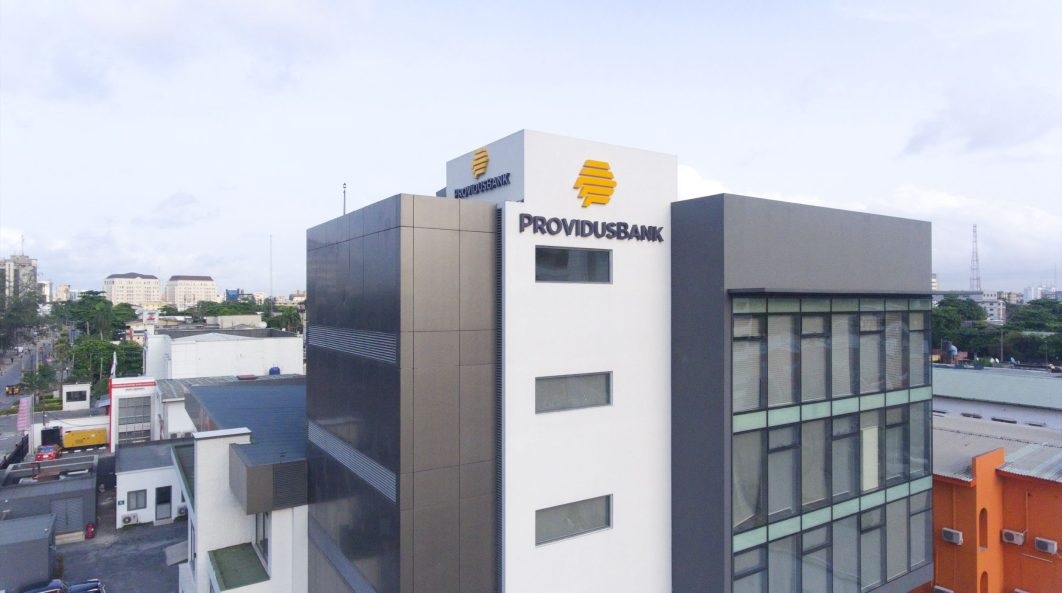Economy
Finally, CBN endorses financial support for Unity bank, Providus merger

The Central Bank of Nigeria (CBN) has granted approval for financial accommodation to support the proposed merger between Unity Bank Plc and Providus Bank Limited.
This is according to a statement released by the CBN, signed by Mrs. Hakama Sidi Ali, the Acting Director of Corporate Communications.
It read: “The Central Bank of Nigeria (CBN) has granted approval for a pivotal financial accommodation to support the proposed merger between Unity Bank Plc and Providus Bank Limited. This strategic move is designed to bolster the stability of Nigeria’s financial system and avert potential systemic risks.”
In the statement, the CBN noted that the merger is contingent upon this financial support, which is essential for the financial health and operational stability of the post-merger organization.
However, the apex bank failed to disclose the amount of financial support approved for the merger.
Financial support to cover Unity Bank’s total obligations
The statement noted that the financial support provided by the CBN is pivotal for addressing Unity Bank’s total obligations to the Central Bank and other stakeholders.
According to the statement, the CBN’s action aligns with the provisions of Section 42 (2) of the CBN Act, 2007.
The statement noted:
“The merger is contingent upon the financial support from the CBN. The fund will be instrumental in addressing Unity Bank’s total obligations to the Central Bank and other stakeholders.
“It is unequivocal to state that the CBN’s action is in accordance with the provisions of Section 42 (2) of the CBN Act, 2007. This arrangement is crucial for the financial health and operational stability of the post-merger organisation.”
The CBN also emphasized that no Nigerian bank currently faces a precarious situation comparable to that of Heritage Bank, which was recently liquidated.
It added that the CBN remains dedicated to safeguarding depositors’ interests and ensuring the smooth functioning of the banking sector through proactive measures and strategic interventions.
What you should know
The Central Bank of Nigeria (CBN) recently revoked the banking licence of Heritage Bank Plc with immediate effect, citing the bank’s persistent financial instability and breach of regulatory requirements.
The decision is part of the CBN’s mandate to maintain a sound financial system in Nigeria, as outlined under Section 12 of the Banks and Other Financial Institutions Act (BOFIA) 2020.
In a statement, the CBN disclosed that Heritage Bank had failed to adhere to Section 12 (1) of BOFIA 2020, which necessitated regulatory intervention.
Despite multiple supervisory measures prescribed by the CBN to mitigate the bank’s declining financial performance, Heritage Bank has been unable to improve its financial health.
The bank’s continuous underperformance poses a significant threat to financial stability, compelling the CBN to revoke its licence.
The CBN also emphasized that the action is crucial to reinforce public confidence in the Nigerian banking sector and to ensure the integrity and soundness of the financial system.
Economy
Nigeria secures aircraft financing deal with Afreximbank

By Francesca Hangeior
A development financing institution, African Export–Import Bank, Afreximbank, has agreed in principle to collaborate with Nigeria on aircraft financing.
Afreximbank, while announcing plans to launch a leasing subsidiary, which will soon take delivery of 25 aircraft to be leased to African airlines, said it will provide Nigerian airlines with access to dry-leased aircraft that would enable them to better service Bilateral Air Service Agreement, BASA, routes and domestic operations.
A statement by Mr Tunde Moshood, special adviser on Media and Communications to the Minister of Aviation and Aerospace Development, Mr Festus Keyamo, said the partnership was achieved during a side meeting held with the Afreximbank team at the four-day Aviation Economic Conference in Dublin, Republic of Ireland.
The statement reads: “A significant milestone in Nigeria’s aviation sector was achieved during a side meeting held with the Afreximbank team at the ongoing Aviation Economic Conference in Dublin, Republic of Ireland. The meeting, facilitated by Boeing’s Senior Director of Finance, Lereece Rose, brought together key stakeholders to discuss aircraft financing opportunities for Nigerian airlines.
“The meeting was attended by the Minister of Aviation and Aerospace Development, Festus Keyamo SAN, who led the Nigerian delegation. The delegation included distinguished members such as the Chairman, Senate Committee on Aviation, Senator Abdulfatai Buhari; Chairman, House Committee on Aviation, Abdullahi Idris Garba, Chairman, Senate Committee on Banking, Insurance, and Other Financial Institutions, Senator Abiru Adetokunbo; Director General of the NCAA, Capt. Chris Najomo; Managing Director of Fidelity Bank, Dr. Nneka Onyeali-Ikpe; COO of Air Peace, Toyin Olajide; CEO of XEJet, Emmanuel Iza; Chairman, ValueJet, Kunle Soname and his Managing Director, Capt. Majekodunmi, and Chairman/CEO of Bellagio Air, Dr. Oludare Akande, among other aviation stakeholders.
“At the meeting, Afreximbank, led by its Director and Global Head of Project and Asset-Based Finance, Helen Brume, agreed in principle to collaborate with Nigeria on aircraft financing. Highlighting the bank’s extensive experience in supporting airlines such as Arik Air, Kenya Airways, and TAG over the past two decades, Brume emphasized the need for robust aviation infrastructure to enhance the competitiveness of African airlines.
“To address this, Afreximbank announced plans to launch a leasing subsidiary, which will soon take delivery of 25 aircraft to be leased to African airlines. This initiative aims to provide Nigerian airlines with access to dry-leased aircraft, enabling them to better service Bilateral Air Service Agreement, BASA, routes and domestic operations.
“Lereece Rose commended the Minister for his efforts in improving Nigeria’s aviation ecosystem, particularly in raising Nigeria’s Cape Town Convention score from 49.5% to 75.5 per cent. This progress underscores the country’s commitment to creating an enabling environment for aircraft financing and leasing.
“The Minister highlighted the critical need for partnerships that would enhance access to aircraft financing for Nigerian operators, facilitating growth and improved service delivery. In response, Afreximbank affirmed its readiness to work with the Nigerian government, signaling a promising future for the country’s aviation industry.
“A committee has been established to follow up on the discussions, ensuring that this partnership materializes into actionable solutions for Nigerian airlines.”
Economy
SEE Dollar (USD) to Naira Black Market Rate Today January 16, 2025 Aboki

As of January 16, 2025, the Nigerian Naira (NGN) has continued to experience some level of volatility against the US Dollar (USD), while this has been the norm for decades now, this largely to some extent reflects the ongoing economic challenges.
See the Naira performance across various currencies
A quick check at the parallel market at Abuja Zone 4 market,as at January 16, 2025 , the black market exchange rate stands firmly at approximately ₦ 1,663.00 per USD. This means if you want to buy a dollar now, it is ₦ 1,663.00 while if you want to sell it is approximately ₦ 1,652.00 .
Please be aware that the parallel market or the black market rates are mostly and notably higher compared with what you get from the official market or CBN rate
Dollar to Naira (USD to NGN) Black Market Exchange Rate Today
Selling Rate ₦ 1,663.00
Buying Rate ₦ 1,652.00
Economy
Providus Bank Battles E-Settlement Company To Salvage N3.7 Billion Loan

In a bid to salvage the sum of three billion, seven hundred and forty-three million, one hundred fifty-two thousand, five hundred and nine eighty Naira which was advanced to E- Settlement company, Providus Bank Limited has applied to a federal high court in Lagos urging the court to set aside an order granted the company to convene a meeting of its creditors to pass a scheme of arrangement.
In an affidavit sworn to by the Head, Loan Recovery & Remedial Management of Providus Bank Limited,Olayinka Lawuyi, he avers thus:
Providus Bank is one of the creditors of the E-Settlement Limited with the sum of N3,743,152,598.57 (three billion, seven hundred and forty-three million, one hundred and fifty-two thousand, five hundred and ninety-eight Naira, fifty-seven Kobo)being owed to it by E-Settlement Limited.
The bank provided E-Settlement Limited with an overdraft facility to the tune of N2,600,000,000 (Two Billion and Six hundred Million Naira only) upon its application to enable E-Settlement Limited to rebook its loan balance in order to enable it to repay from its current cash flow realities.
The said facility was due for repayment on 3rd January 2025, as the agreed tenor for the overdraft facility was 365 days.
Further to the paragraphs above, PROVIDUS bank and E-Settlement Limited had already taken steps towards an agreement/compromise with respect to the loan facility, and it is a shock to the bank that while negotiating the terms of a loan restructuring privately with the bank E-Settlement Limited has taken steps to hold a court-ordered meeting of all its creditors.
E-Settlement Limited approached the Court vide an Ex Parte application dated 23rd October 2024, seeking, amongst other things, an order mandating all the creditors of E-Settlement Limited to attend a meeting for the purpose of the E-Settlement Limited, proposing a Scheme of Arrangement and Compromise to all its creditors under Section 715 of the Companies and Allied Matters.
In E-Settlement Limited’s application to the Court, E-Settlement Limited indicated that it is indebted to its creditors in the sum of N12,458,553,150 (twelve billion, four hundred and fifty-eight million, five hundred and fifty-three thousand, one hundred and fifty Naira).
By E-Settlement Limited’s Scheme of Arrangement, it wishes to defray its entire alleged N12, 458,553,150 (twelve billion, four hundred and fifty-eight million, five hundred and fifty-three thousand, one hundred and fifty Naira) with the sum of $2,000,000.00 (Two Million US Dollars), which is to be full and final payment of its alleged indebtedness to all its creditors on a pro-rata basis. E-Settlement Limited stated in its application that it is indebted to the following creditors in the following amount.
Bank of Industry: N452,326,928
Kunoch Limited: N849,896,553
Vale Blue Finance Limited: N309,400,140
VFD Microfinance Bank Limited: N30,000,000
Kuda Microfinance Bank Limited: N1,510,193,217
PROVIDUS BANK Plc: N3,795,837,670
Emirates and Highbury Limited: N4,590,065,330
Advanced Technologies Nigeria Limited: N425,072,322,9
Aza Finance: N8,870,666
Kizento Project: N170,831,000
Salaries: N324,950,000
TOTAL, N12,467,443,826
E-Settlement Limited purposefully and intentionally misrepresented and suppressed several material facts before the Court, which ought to have been openly provided to enable the Court to reach an informed decision on the application.
Mr Lawuyi avers further that as a fact that E-Settlement Limited misrepresented and suppressed material facts from the Court in obtaining the orders:
The fact that E-Settlement Limited is negotiating privately with the Providus bank on a restructuring of its loan obligations E-Settlement Limited concealed the fact that of the 11 Creditors listed in the Scheme of Arrangement, at least 3 (Three) of the said Creditors have the same/similar Directors and are controlled by the same proprietors as E-Settlement Limited herein.
As a fact E-Settlement Limited and its alleged creditors have already arrogated to themselves 49.6% out of the 80% required by Section 715(1) to pass the Scheme of Arrangement.
The Scheme of Arrangement currently proposed by E-Settlement Limited is inherently unfair to PROVIDUS Bank
As a fact E-Settlement Limited commenced the application in Suit No: FHC/L/MISC/709/2024, vide an Ex Parte Originating Summons to obtain the order therein, without the Court hearing PROVIDUS BANK or any of the other creditors on the propriety of granting the said orders.
Further to the statement above, E-Settlement Limited obtained Court orders affecting the rights and interests in the loan facility extended to it without the Court first hearing PROVIDUS bank or giving it an opportunity to be heard, a breach of it’s right to fair hearing.
E-Settlement Limited misrepresented to the Court the true and actual position of its indebtedness.
The prayers sought in this application are to protect the rights and interests of PROVIDUS Bank the party, affected by the order.
Consequently, It is in the interest of justice to grant this application. E-Settlement Limited will not be prejudiced by the grant of this application. The court has adjourned for the hearing of the application.
-

 News17 hours ago
News17 hours agoJust in: Again , Petrol Price Increases To N1150 Per Litre Nationwide
-

 News17 hours ago
News17 hours agoSad: Ex-Delta First Lady, former beauty queen, dies in London hospital
-

 News17 hours ago
News17 hours agoSEE Dollar (USD) to Naira Black Market Rate Today January 18, 2025 Aboki
-

 News17 hours ago
News17 hours agoUK Court Jails 35-yr-old Nigerian 10 Yrs After Brutal R3pe Of Woman In Nottingham
-

 Metro24 hours ago
Metro24 hours agoGunmen Abduct 15 Residents, Including School Headmaster
-

 News24 hours ago
News24 hours agoPresident Tinubu Reportedly Backs Creation of New Southwest State
-

 News17 hours ago
News17 hours agoTinubu Exhausted N9.74bn Supplying Rice, Beans Palliatives To Nigerians In 2024 – Report
-

 News10 hours ago
News10 hours agoSad! Train Crushes Man To D3ath In Oshodi, Lagos








